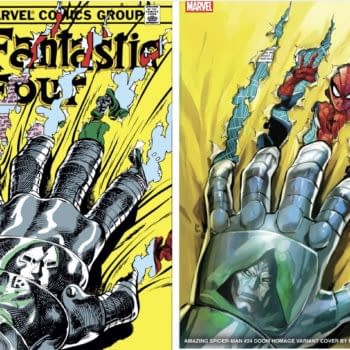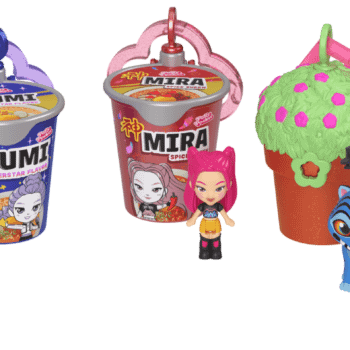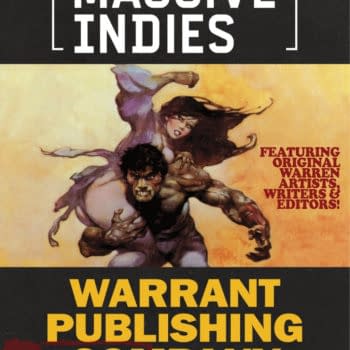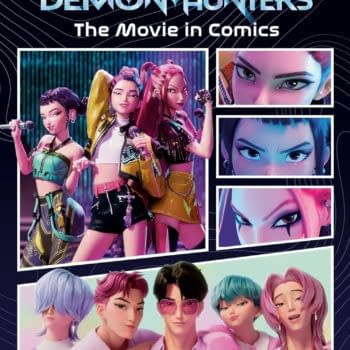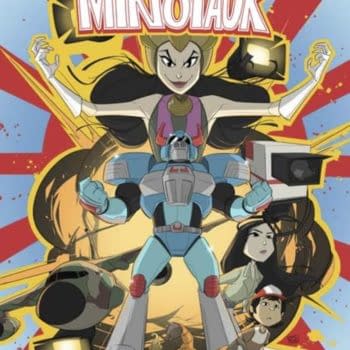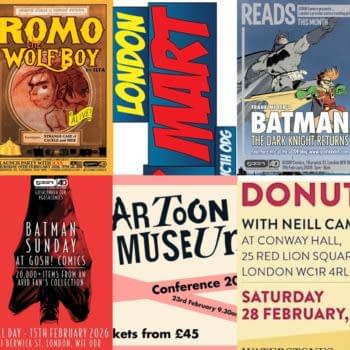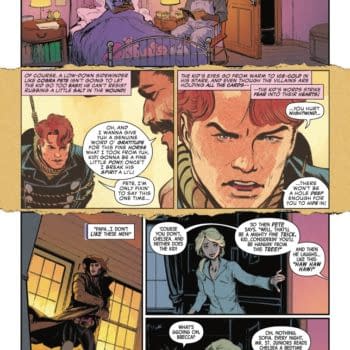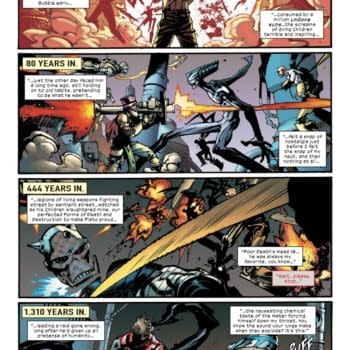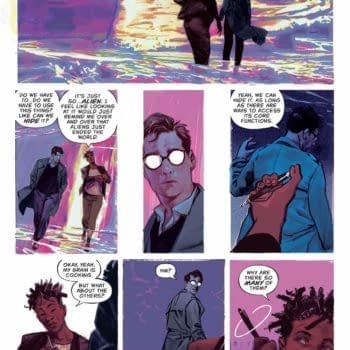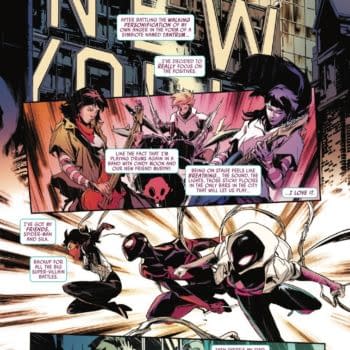Posted in: Comics | Tagged: afhanistan, neil gaiman, nft, nftwatch, refugees, unhcf
NFT Of Neil Gaiman Poem Auction To Aid Afghanistan Refugees
Neil Gaiman is a United Nations High Commissioner for Refugees goodwill ambassador. Today he will see an NFT of the film of his poem, What You Need To Be Warm, which he donated to the UNHCR alongside a never-before-published message from Gaiman, up for auction by Mars Panda World. The winning bidder will also win a signed copy of The Sandman with a personalised message donated by Gaiman. It currently has a bid openingof 38.5 WETH or $118,531.105. UPDATE: It did not sell.

The auction, all proceeds of which will be donated to the United Nations High Commissioner for Refugees (UNHCR), was organized as a way for a number of authors, artists, NFT influencers and athletes to auction off NFTs to raise funds to help the many Afghans who were displaced following the Taliban takeover.
In 2020, author and UNHCR Goodwill Ambassador Neil Gaiman wrote a poem inspired by words and memories shared by people all over the world to help raise funds to keep refugees warm over winter. The 'What you need to be warm' poem was later made into a film featuring hundreds of illustrations from various contributors and Neil Gaiman. As part of the Mars Panda NFT Charity Auction in support of UNHCR, Neil explains in a previously unpublished filmed message the genesis and evolution of the project. The explainer video (only viewable to the winning bidder) accompanied by the film version of the poem is one of the NFTs featured in the charity auction. The winning bidder of this NFT will also receive a copy of The Sandman by Neil Gaiman signed by the author with a personalized message. All proceeds from the charity auction, minus administrative and operational costs, will be donated to UNHCR in support of vulnerable displaced Afghans. Additionally, 20% of the resale value for all subsequent sales of the auction's NFTs will be donated to UNHCR.
The film can be seen and heard (for free) right here. It goes under the hammer today.
Other participants include Khaled Hosseini, author of The Kite Runner and A Thousand Splendid Suns, and illustrator Dan Williams. The two donated 17 original ink and watercolour illustrations from Housseni's short book Sea Prayer, which winning bidders will get a signed copy of. In a statement, Kevin Pang, CEO of Mars Panda World, stated "The relentless influx of wealth and interest in NFTs are perfect ingredients to make them a force of good. NFTs have empowered everyone to convert their art and creativity into meaningful actions targeting social and humanitarian issues."
In response to concerns about his involvement with NFTs, Neil Gaiman posted on his Tumblr;
And on Twitter, "I've said no to all the NFT requests that have come my way. I said yes to this one for a charity auction for @Refugees, to aid Afghan refugees."
NFTs – or non-fungible tokens – have naturally received a lot of coverage on Bleeding Cool. Intended to be unique digital records of ownership of anything, including digital files, verified by blockchain technology, there are major concerns with the current NFT marketplace. To make an NFT, you have to "mint it"- register it on the blockchain, which takes energy and costs money, from $40 to $1000, depending. That registration can then be sold on. Creating and maintaining the ownership and registration of NFT artwork uses somewhere between weeks, months, years, and even decades of a First World user's average citizen's energy consumption, depending on the work. Ethereum, the digital currency mostly for NFT, uses a protocol to determine their value called "proof of work", through computer "mining". Initially, a background process that could run on a laptop, the proof of work gets harder to match the increase in mining which has led to enormous banks of computers being set up in cheap energy territories in air-conditioned shipping containers, all competing with each other. And in total, using more energy than Argentina.
There have been moves to offer more environmentally friendly NFT solutions, but for some NFT artwork also recreates the worst aspects of the physical art market as standard for the digital art market, regarding them primarily tokens of monetary worth, attracting high roller money laundering and tax evasion, as well as not respecting the copyright of the actual originators of the artwork being NFT'd. For some, it is a Ponzi scheme waiting to collapse, but supporters point that, despite challenges, bitcoin still exists and money itself is just a physical version of an NFT. And for a number of creators, it has become a way to sell digital original art in the same manner that they sell physical original artwork to collectors, though many more are finding their own work pirated for NFTs with people making millions off their unwitting backs.







